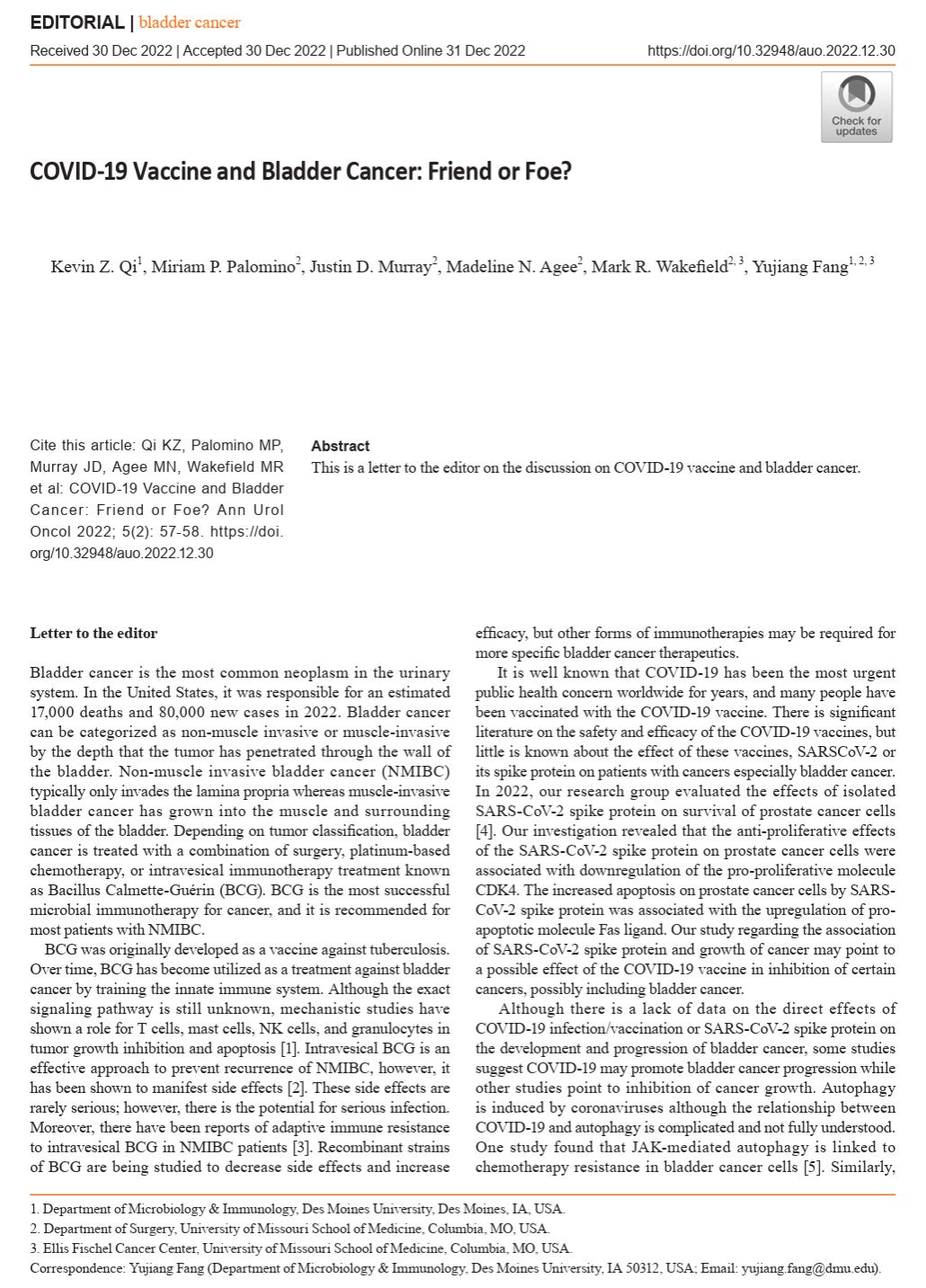By Peter A. McCullough, MD, MPH
With former Dallas Cowboys great Deion Sanders developing turbo cancer of the bladder, Sanders cancer team should be combing the medical literature to see if this is a new development arising out of the pandemic and the disastrous COVID-19 vaccine campaign.
Anderson et al of the University Hospital Limerick, concluded a retrospective study of bladder cancer procedures prior to the pandemic (period 1: March 1, 2019 to March 15, 2020) and following the pandemic (period 2: March 16, 2020 to March 1, 2021).
A total of 207 procedures for confirmed bladder cancer were performed during the study period: 126 in period 1 and 81 in period 2, Anderson’s team reported in Annals of Medicine and Surgery. New cases account for 66 (52.4%) of the 126 procedures in period 1 and 43 (53.1%) of the 81 procedures in period 2. The rates of invasive disease and high-grade disease were higher following the pandemic compared with before the pandemic (43.2% vs 26.2% and 47.4% vs 35.8%, respectively).
“The higher rate of more advanced stage and grade of disease seen in period two suggests patients are presenting later,” the authors wrote. “This should be considered when allocating resources in the management of non-COVID related diseases.”
Most patients had early-stage cancer, with 135 (65.2%) presenting with pTa and 50 (24.2%) with pT1 disease, the investigators reported.
The overall mean waiting times from the date of booking to the date of the procedure was similar during periods 1 and 2 (63 and 76 days, respectively).
Keep in mind this was early in the pandemic and the proportion vaccinated was not reported.

Qi et al have reported that undoubtedly the SARS-CoV-2 Spike protein, which may be found in urine, interacts with both bladder and prostate cancer cells.
Although there is a lack of data on the direct effects of COVID-19 infection/vaccination or SARS-CoV-2 spike protein on the development and progression of bladder cancer, some studies suggest COVID-19 may promote bladder cancer progression while other studies point to inhibition of cancer growth.
These data compel Sander’s doctors to send his cancerous bladder tissue for PCR assessment for vaccine mRNA, SV-40, and Spike protein staining. Failure to do so will hurt Sanders, the cancer community, and the public at large.
Please subscribe to FOCAL POINTS as a paying ($5 monthly) or founder member so we can continue to bring you the truth.
Peter A. McCullough, MD, MPH
President, McCullough Foundation













